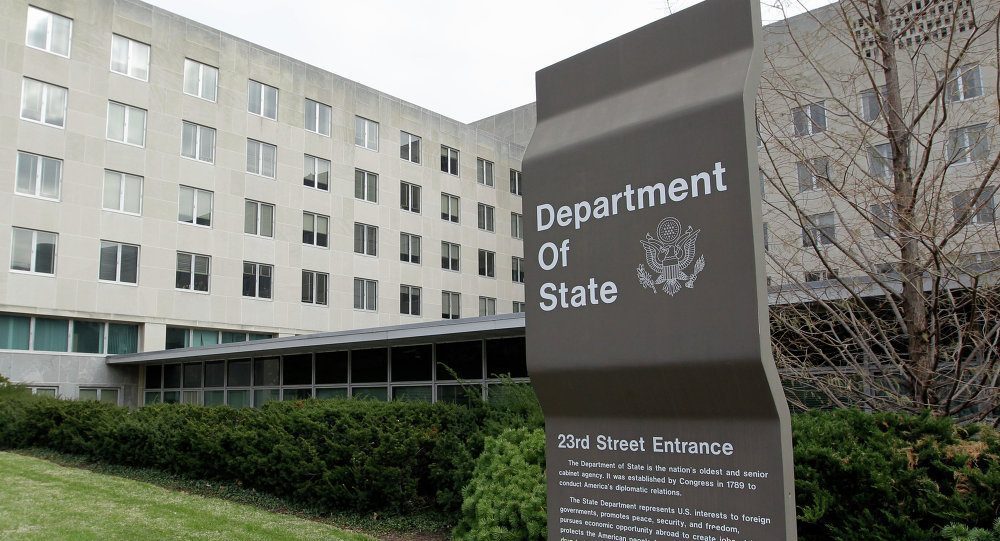
The U.S. State Department advised the American citizens to avoid Gaza and limit travel to the West Bank after a Palestinian rocket attack led to Israeli bombings in Gaza.
In a travel warning issued Tuesday, the U.S. State Department urged citizens in Gaza “to depart as soon as possible when border crossings are open,” noting that although a cease-fire between Gaza and Israel is in place, “sporadic mortar or rocket fire and corresponding Israeli military response continue to occur.” It added that Gaza, adjacent to Israel’s western border, is “under the control of Hamas”, recommending American citizens to “avoid all travel to the Gaza Strip, and if you are there, leave as soon as you are able.”
The Department of State warns U.S. citizens against all travel to the Gaza Strip and urges those present to depart as soon as possible when border crossings are open. The security situation remains complex in Israel and the West Bank, and can change quickly depending on the political environment, recent events, and geographic location. U.S. citizens should exercise caution and remain aware of their surroundings when traveling to areas where there are heightened tensions and security risks. The Government of Israel and the Palestinian Authority both make considerable efforts to police major tourist attractions and ensure security, particularly in areas where foreigners frequently travel. This replaces the Travel Warning issued December 15, 2015.
Within Israel and the West Bank, a rise in political and religious tension beginning in October 2015 led to a spike in violence in which U.S. citizens were killed and wounded. There is no indication that U.S. citizens were specifically targeted based on nationality. Perceived religious affiliation was a factor in some of the attacks. Attacks were carried out using knives, vehicles, and guns. Israeli security forces reacted with deadly force, which resulted in some bystanders being injured or killed in the crossfire. While the frequency of attacks has abated significantly since April 2016, the possibility of random violence continues to exist and can happen without warning. U.S. citizens should stay abreast of current events and know what areas to avoid when traveling throughout the region.
For your safety, the Department of State recommends that U.S. citizens:
Avoid all travel to the Gaza Strip, and if you are there, leave as soon as you are able;
Maintain a high degree of situational awareness and exercise caution at all times;
Avoid demonstrations – which can turn violent – and steer clear of neighborhoods where police have restricted access;
Beware of and report unattended items or packages;
Follow the instructions of security and emergency officials;
Report suspicious activities or items to security officials; and
Learn the location of the nearest bomb shelter or other hardened shelter.
When planning their own travel, U.S. citizens should consider the following rules that apply to U.S. government employee travel:
U.S. government employees are not allowed to travel to Gaza;
With the exception of Jericho, Bethlehem, and along Routes 1 and 90, U.S. government employees are prohibited from personal travel within the West Bank. Restrictions on personal travel by U.S. government employees may change depending on the security environment;
All other U.S. government travel into the West Bank outside the aforementioned areas must be for official business and conducted with enhanced security measures;
U.S. government staff take additional security precautions when visiting refugee camps and “seam areas” where Israelis and Palestinians intersect and which have historically been flashpoints for violence. For example, sites with significant religious meaning to multiple faiths can be subject to violent protests or security incidents with little to no warning, especially on or around significant religious holidays;
U.S. government employees are prohibited from personal travel into Jerusalem’s Old City on Fridays during the Muslim month of Ramadan. The U.S. government occasionally restricts travel for its employees to the Old City based on the current security environment;
U.S. government employees are prohibited from using public buses and public bus terminals throughout Israel and the West Bank; and
U.S. government employees must provide advance notification to Embassy security officials if traveling for any reason to the following locations:
Israeli military forces carried out up to 50 airstrikes Sunday in Gaza in response to a rocket attack earlier in the day, which struck the Israeli border town of Sderot.
The Arab League condemned Israel’s attack. Deputy Secretary-General Ahmed Bin Hali suggested it was meant to provoke Palestinians by taking place on the anniversary of an attempted arson of Jerusalem’s Al-Aqsa Mosque, Islam’s third-holiest site, in 1969.
The State Department also outlined recommendations for U.S. citizens in the West Bank, east of Israel. U.S. government employees are forbidden to travel in the West Bank, with the exception of the cities of Jericho and Bethlehem, and along Routes 1 and 90. They also cannot use public transportation anywhere in Israel or the West Bank and must give advance notification if traveling within 7 miles of the Gaza border, within 1.5 miles of Israel’s border with Lebanon or south of the town of Be’er Sheva in Israel.
A 51-day war between Israel and Gaza in 2014 killed more than 2,200 Gazans and injured more than 12,000, the United Nations reported. Since then at least 160 Palestinians have been killed in sporadic fighting in Gaza and the West Bank.



